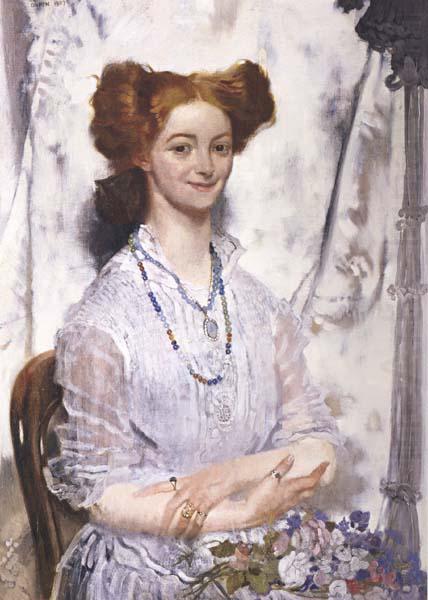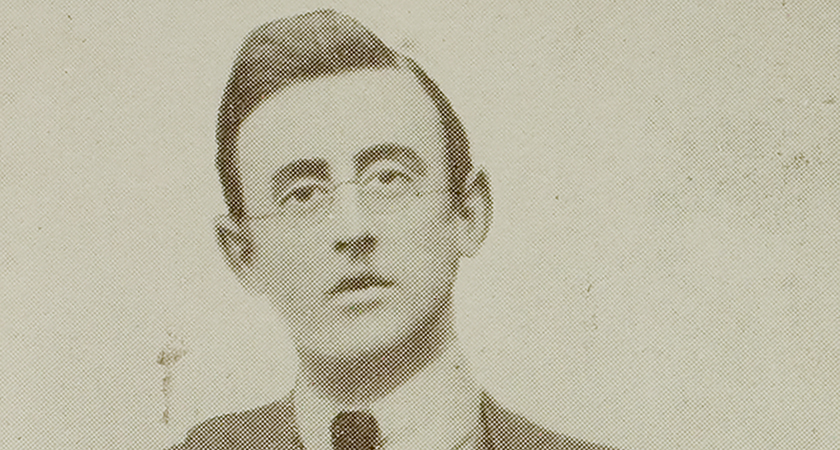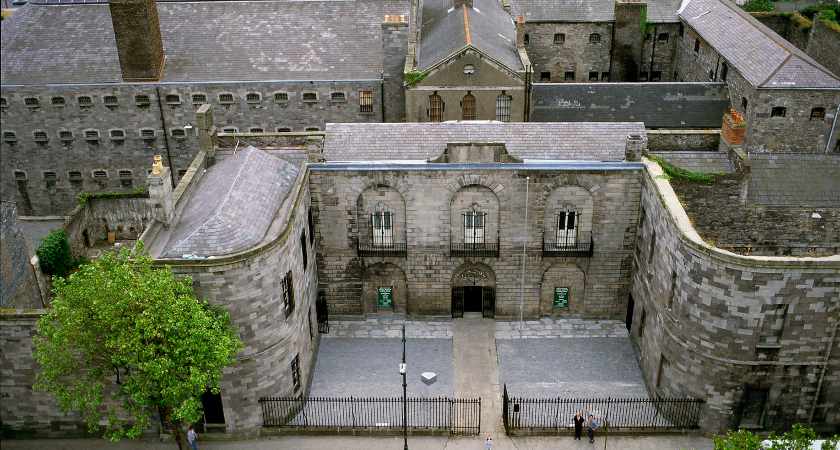ON THIS day in 1888, Grace Gifford Plunkett was born in Dublin. She would go on to be one of the most famous figures in the battle for Ireland's freedom.
Grace Gifford Plunkett was immortalised as the subject of a poignant ballad, but the full story of her fascinating life could never fully be told in those few verses.
Born on 4 March 1888-- 133 years ago today-- Grace Gifford was a talented artist, whose work focused on cartoons, and was active in the Republican movement which eventually led to the creation of the Republic of Ireland.
Her mother was Protestant, while her father was Catholic, and while her brothers were baptised Catholic and her sisters as Protestant, the children were raised Protestant and lived an affluent childhood.
Grace met her future husband, Joseph Plunkett, through her brother-in-law Thomas MacDonagh, another future martyr for Irish freedom, who was married to her sister Muriel.
Despite being raised Protestant, Grace had a deep interest in Catholocism, which was exacerbated as she and Joseph, who was from a staunchly Catholic family, fell in love.
 Grace Gifford, painted by artist William Orpen
Grace Gifford, painted by artist William OrpenGrace studied and was indoctrinated into the Catholic church after Joseph proposed to her in 1915-- the pair planned a double wedding with his sister and her fiancé, and the wedding date was set for Easter Sunday, 1916.
But instead, the failed uprising, now known as the Easter Rising of 1916, took place, and Joseph was captured and imprisoned in Dublin's Kilmainham Gaol along with the other leaders, including Thomas MacDonagh.
Hearing that her fiancé was to be executed by firing squad at dawn, Grace bought a ring from a Dublin jewelers and pleaded with the military authorities to allow their wedding to take place.
As the famous song goes, Grace and Joseph were married on the grounds of the prison, hours before Joseph Plunkett was executed for his role in the Easter Rising.
 Joseph Plunkett and Grace Gifford were married hours before his execution (Picture: National Library of Ireland)
Joseph Plunkett and Grace Gifford were married hours before his execution (Picture: National Library of Ireland)Her sister Muriel, whose husband Thomas MacDonagh was also executed, died of heart failure just one year after the leaders of the Rising were killed, and Grace became a co-guardian to the two children she left behind.
Heartbroken but determimed to create the Republic which she and Joseph had fought for, Grace returned to her art, inking political cartoons in favour of Sinn Féin policies and fighting in Ireland's Civil War.
In 1923, she was interned without trial for months in the same prison where her husband had lost her life, and her presence can still be seen in her cell, as she painted portraits from the Catholic faith on the walls.
Upon her release, and with the Civil War over, Grace was among the many Anti-Treaty fighters who were subject to discrimination in the new Free State.
Struggling for money and for housing, with just her cartoons to sell to make a meagre wage, the chance of financial security was withheld by her in-laws, who denied her husband's will, which stated that all of his money be left to her, as it contained only one witness' signature.
 KIlmainham Gaol, where Joseph Plunkett was executed for his role in the Easter Rising
KIlmainham Gaol, where Joseph Plunkett was executed for his role in the Easter RisingJoseph Plunkett, in his final letter to his soon-to-be-widow, had requested that she fight for the money as it was rightfully hers-- and after a number of years, Joseph's parents agreed to pay her a sum of money, and she also received a Civil Pension from Éamon DeValera's government in 1932, allowing her to live the rest of her days in relative security.
Grace Gifford-Plunkett died in 1955 at the age of 67, and was buried with full military honours, close to her husband's final resting place in Glasnevin Cemetery.
Her grave continues to receive countless visitors each year, many who were moved by the song which put music to Joseph Plunkett's last thoughts.

